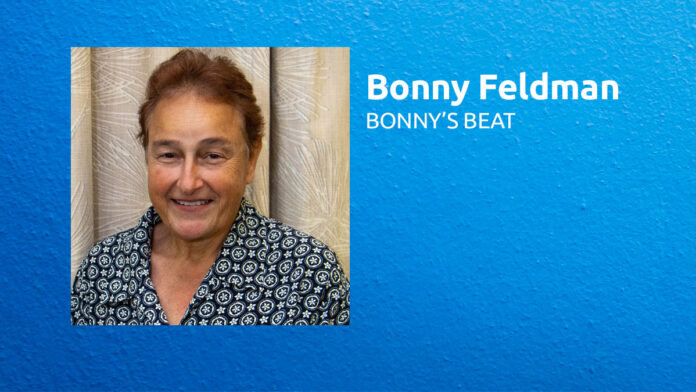At a recent Shabbat supper at the home of a family member, I was struck by the severity of the feelings of loss when families become divided because of adult children leaving the country.
A young couple at the supper were explaining with great excitement their plans to move to Australia soon: the new jobs they will have, where they are planning to find a home, what they have been explaining to their child about the move, and so on. Clearly, for them, this is something positive, something to look forward to.
Their parents, however, exhibited a very different set of emotions. They are clearly not looking forward to a time when they won’t be able to have regular in-person contact with their children and grandchildren. For them, the emigration is not something they look forward to. After all, even with FaceTime, WhatsApp, Zoom – and the other technologies that help us keep in contact in ways that a previous generation could never have imagined – they won’t be able to experience the joy of fetching the grandchildren from school, attending a 7-year-old’s school concert, or cuddling up together to read a book.
It’s a very real issue among South Africans today – and certainly among our own community, which is yet again seeing the exodus of many younger people. One certainly understands the motivation for choosing to leave South Africa, which has unfortunately suffered from a failed and corrupt government, but the emotional impact on the family is really problematic.
The situation also brought to mind what it must have been like for the families of our forebears who came to this country in the late 19th and early 20th centuries. For them, the loss was even more profound because, when one said the final goodbye, one knew pretty much that one would never, ever see the remaining family again. It’s an emotion so poignantly expressed in the movie Fiddler on the Roof. I also thought about my own father, who was born in Lithuania. He had two sisters who left for America before he (the youngest of nine children) was born. He didn’t know them at all, bar from the bits of information about them and their families that he got in letters from America.
And, in an article we carry this month on page 17 (and here), a similar sense of loss is expressed by Judge Dennis Davis, who talks about the realisation of the loss of potentially treasured friendships that never developed because so many of his schoolmates left South Africa in earlier years.
Continuing the theme of leaving one’s home country, we carry a review of the new David Kramer musical on page 27 (and here), which provides a fascinating insight into a local story with an American element. We also draw your attention to the amalgamation of a few schools into one educational institution, the Jewish International School, Cape Town (page 15 and here). There’s also the celebration of the 25th anniversary of the Cape Town Holocaust & Genocide Centre (page 26 and here).
• Read the July 2024 issue – Click here to start reading.
• To advertise in the Cape Jewish Chronicle and on this website – kindly contact Lynette Roodt on 021 464 6736 or email advertising@ctjc.co.za. For more information and advertising rate card click here.
• Sign up for our newsletter and never miss another issue.
• Please support the Cape Jewish Chronicle with a voluntary Subscription for 2024. For payment info click here.
• Visit our Portal to the Jewish Community to see a list of all the Jewish organisations in Cape Town with links to their websites.
Follow the Cape Jewish Chronicle: Facebook | Instagram | LinkedIn











